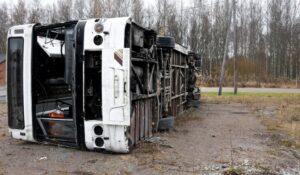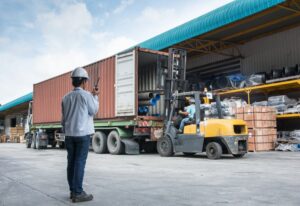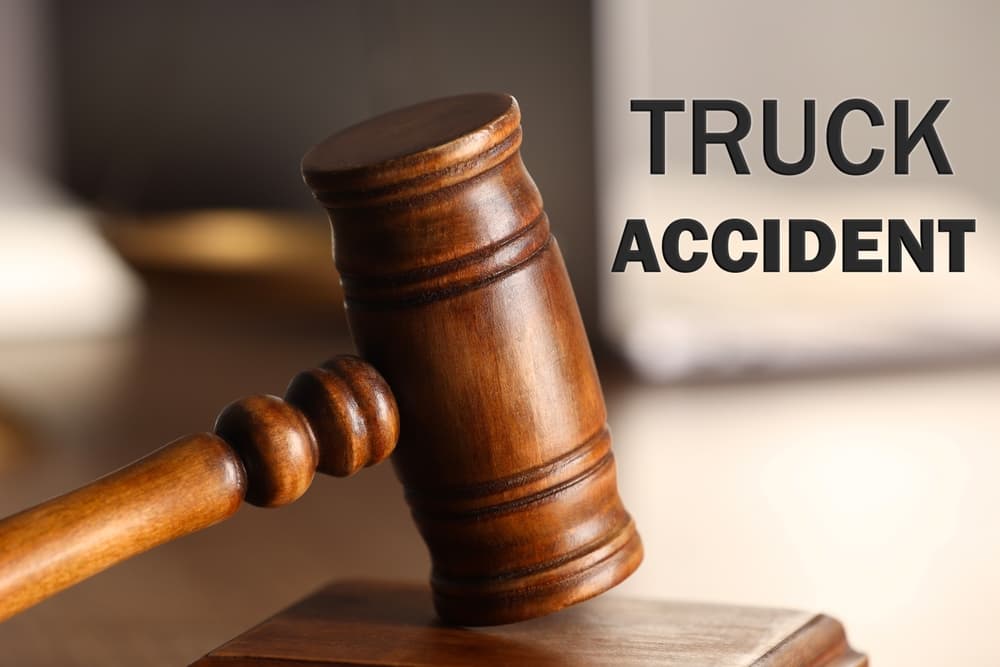If you’re considering filing a lawsuit after a truck accident, you may wonder how the process works. Truck accident lawsuits can seem confusing at first glance, but knowing the main stages of the lawsuit process can give you a clear picture of what lies ahead. From the initial investigation to settling or going to trial, here’s a look at how a truck accident lawsuit unfolds and what a truck accident lawyer can do to help you along the way.
Why You Need a Truck Accident Lawyer
A truck accident lawyer can be pivotal in securing fair compensation after your accident. Trucking companies and insurers are often well-prepared to fight claims, so having a seasoned attorney on your side can significantly impact the outcome. An attorney handles everything from communicating with insurance adjusters to representing you in court if needed. In the meantime, you can focus on your recovery and getting back to your life.
Investigating the Truck Accident
Every lawsuit starts with a thorough investigation. A truck accident lawyer typically digs deep into what happened, seeking answers beyond the surface. Here’s what this stage usually entails:

- Collecting evidence at the scene: Right after the accident, your lawyer will want to gather as much evidence as possible from the scene. This evidence may include police reports, photographs of the wreckage, and witness statements.
- Examining the truck’s black box: Many commercial trucks are equipped with electronic logging devices, also known as black boxes, which record vital information about the truck’s speed, braking, and engine performance. Your lawyer can request this data, which might reveal if the truck was speeding, whether the driver attempted to stop before the crash, or if the truck had mechanical issues.
- Requesting maintenance records: Trucks undergo regular maintenance, and any lapses in upkeep can be relevant to your case. Reviewing maintenance records can reveal whether the company overlooked essential repairs or routine inspections.
- Investigating the trucking company: Trucking companies are responsible for maintaining safe practices, and an attorney will look closely at whether the company has a record of unsafe behavior. Reviewing the company’s history of safety violations or prior accidents can sometimes expose a pattern of negligence.
- Analyzing medical records: Your medical records are also vital to your case, as they document the extent of your injuries and their impact on your life. Medical experts may also be brought in to provide detailed insights into your long-term prognosis and care needs.
Understanding Liability in a Truck Accident Lawsuit
Liability in a truck accident isn’t always straightforward. Unlike typical car accidents involving only one or two drivers, a truck accident often involves multiple parties, making liability complex.
Knowing who might be liable helps you and your lawyer pursue compensation from the right sources, increasing the chance of a fair recovery. Here’s a look at the potential parties who may bear responsibility in a truck accident lawsuit.
The Truck Driver

Truck drivers are expected to follow specific safety standards; when they don’t, they may bear direct responsibility for an accident. Speeding, distracted driving, or breaking the hours-of-service rules are common actions that can make a truck driver liable for an accident.
- Speeding: Truck drivers often face tight delivery schedules, and some may feel pressured to speed to stay on track. However, speeding in a heavy, large vehicle can lead to serious accidents, as trucks require more time and distance to stop than smaller vehicles.
- Distracted driving: Whether texting, adjusting the GPS, or reaching for something in the cab, distracted driving can be disastrous when a truck driver takes their eyes off the road. The time it takes to look away, even for a few seconds, can cause a severe accident, especially at highway speeds.
- Hours-of-service violations: Truck drivers are limited in the number of hours they can drive consecutively without rest, but some ignore these rules to meet deadlines. Fatigued driving can significantly impair reaction times, decision-making, and alertness, leading to accidents that could have been avoided.
The Trucking Company
In many cases, the trucking company can also be held liable for an accident. When they fail to operate safely, they can be sued for damages. Here’s how a trucking company might be held responsible:
- Failure to follow safety regulations: Trucking companies must comply with federal and state regulations regarding vehicle maintenance, driver training, and safety practices. If the company skips maintenance checks or overlooks safety measures to cut costs, it can lead to dangerous road conditions.
- Hiring unqualified drivers: Trucking companies are responsible for ensuring their drivers are properly trained and qualified to operate large vehicles. When a company hires a driver without the necessary skills or proper licensing, it may be liable for accidents caused by the driver’s lack of experience or poor decision-making.
- Pressuring drivers to meet deadlines: Some trucking companies pressure drivers to meet unrealistic delivery schedules, indirectly encouraging speeding and other risky behaviors. When a company’s policies create a culture of urgency that compromises safety, they may bear responsibility if those pressures lead to an accident.
Manufacturers
Sometimes, an accident may not be the fault of the driver or the trucking company but rather a problem with the truck itself. Trucks are made up of complex parts and systems; when any of these fail, the results can be catastrophic. In cases where a defect in the truck’s parts contributed to the accident, the manufacturer might also be liable.
- Faulty brakes: Trucks rely on powerful braking systems to stop quickly and safely. If the brakes malfunction due to a design or manufacturing defect, the truck may be unable to stop in time to avoid an accident.
- Defective tires: Tires are another crucial component in truck safety. Defective or poorly manufactured tires can lead to blowouts, causing the driver to lose control. If the tire manufacturer didn’t ensure product quality, they might be held responsible for any accidents caused by the tire failure.
- Other mechanical failures: Beyond brakes and tires, trucks have numerous other parts that can fail if not correctly designed or manufactured. From steering components to engine parts, any failure that results from a defect could point liability toward the manufacturer.
Cargo Loaders

Another party that might bear responsibility in a truck accident is the team responsible for loading the truck. Improperly loaded or unsecured cargo can cause a truck to become unbalanced, making it difficult for the driver to maintain control. Here’s how cargo loaders might contribute to an accident:
- Improperly balanced loads: Trucks must be loaded with balanced weight distribution to ensure stability. If cargo loaders don’t distribute the load evenly, the truck can sway, tip over, or become harder to handle.
- Unsecured cargo: If cargo isn’t secured correctly, it can shift during transit, throwing off the truck’s center of gravity and increasing the risk of rollover accidents. Loose cargo can also spill onto the roadway, creating hazards for other drivers.
- Overloaded trucks: Some loaders may attempt to exceed the truck’s weight capacity, ignoring legal limits. Overloaded trucks are more challenging to control and put additional stress on the brakes, tires, and other systems, making them more susceptible to accidents.
Navigating Multiple Liable Parties in a Truck Accident
Each party, from the driver to the trucking company, manufacturer, or third-party cargo loading companies, has its own insurance coverage, legal representation, and potential defenses. Your truck accident attorney can help streamline this process, handling communications, gathering evidence, and coordinating with all parties involved to secure fair compensation.
Filing the Lawsuit: What to Expect
Once your truck accident lawyer has gathered evidence, assessed liability, and evaluated your claim, the next step is to file a lawsuit. Filing a complaint officially begins the legal process and signals to the other party that you’re seeking compensation for your injuries. The complaint will outline the basis of your case, including:
- The details of the accident: This will include the date, time, and location of the incident, as well as a description of what happened.
- The damages you’re seeking: This section details the compensation you’re requesting, which may include medical expenses, lost income, pain and suffering, and more.
- The parties you’re suing: Every party you believe is liable for your accident will be named in this document.
After filing, the defendants will have an opportunity to respond. They may deny your allegations, admit certain aspects, or provide their own version of events.
The Discovery Process: Building Your Case
Once the lawsuit is filed, the discovery phase begins. Discovery is a pre-trial process where both sides exchange information relevant to the case. This stage is crucial for gathering additional evidence and can include several components:
- Interrogatories: These are written questions that each party must answer under oath. They allow both sides to gather information about the other party’s version of events, insurance coverage, and the defenses they may use at trial.
- Depositions: Depositions involve live questioning of witnesses, parties involved, or experts under oath. During a deposition, attorneys for both sides can ask questions to clarify facts, obtain admissions, or test the credibility of witnesses.
- Requests for documents: In this part of discovery, your truck accident lawyer can request specific documents from the other party. These documents can include the truck driver’s employment file, maintenance logs, or any internal communications related to the accident.
- Independent medical exams: Sometimes, the defendant may request that you undergo an independent medical exam (IME) to assess your injuries. This exam is conducted by a doctor chosen by the defendant’s side, and the results can be used to challenge or confirm your claims.
Negotiating a Settlement with the Insurance Company

Once both sides have reviewed the evidence and analyzed the strength of the case, negotiations often begin. A truck accident lawyer will typically negotiate with the insurance companies on your behalf to try and reach a fair settlement. Settlement negotiations can happen at any point, even after filing a lawsuit, and involve a back-and-forth discussion where each side presents offers and counteroffers.
If the initial settlement offer doesn’t cover your losses adequately, your truck accident attorney may advise rejecting it. It’s not unusual for insurance companies to start with a low offer in hopes that you’ll settle quickly. A lawyer can assess whether the offer is reasonable and will help you decide when to accept or push for more.
Taking the Case to Trial
If settlement talks fail, your case may go to trial. The trial process can be lengthy and involves several stages:
- Jury selection: The first step in a jury trial is selecting a jury. During this stage, both sides question potential jurors to determine their impartiality.
- Opening statements: Each side presents an opening statement, giving an overview of their case and setting the stage for the evidence that will follow.
- Presentation of evidence: Both sides present their evidence, including witness testimony, documents, and any exhibits relevant to the case. Your truck accident lawyer will call witnesses, present evidence, and cross-examine the defense’s witnesses to argue your side of the story.
- Closing arguments: After both sides have presented their cases, they make closing arguments to summarize their points and persuade the jury or judge of their position.
- Deliberation and verdict: In a jury trial, the jury deliberates and decides on a verdict. If you’re successful, the jury or judge will award compensation based on your losses.
How Long Does a Truck Accident Lawsuit Take?
The timeline for a truck accident lawsuit can vary widely. Factors influencing the duration include the case’s complexity, both sides’ willingness to settle, and the court’s schedule. Your case can settle within a few months or take a year or more to resolve. A truck accident attorney can provide an estimate based on the specifics of your case.
Contact a Truck Accident Lawyer to Move Forward with Confidence
The decision to file a truck accident lawsuit is never easy, but understanding the process can make it feel more manageable. Each stage, from the investigation to potentially going to trial, contributes to building a strong case and increasing the likelihood of securing the compensation you need.
With the right personal injury lawyer advocating for you, you can move forward knowing you’re not navigating this alone. From securing evidence to representing your interests in court, they’re there to shoulder the legal burden, allowing you to focus on healing and rebuilding after the accident. Please contact an attorney immediately for a free case review.

